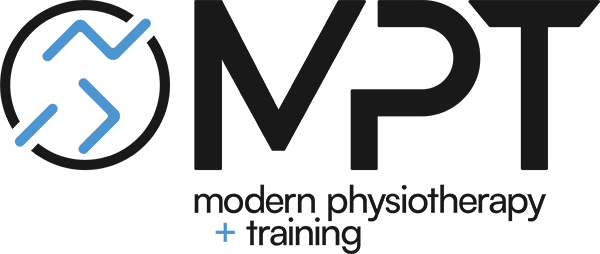We are the 2nd clinic in Canada to offer DorsaVi Athletic Movement Index (AMI) assessments. This technology is used in the NFL, NHL and NBA among other professional sports to improve performance, reduce risk of injury and guide return to sport planning.
What does it do?
- Improve Performance
- Reduce Injury Risk
- Return to Sport (ACL, concussion, lower body injuries)
How does it work?
Four medical grade sensors are attached to the athlete to provide lab quality data in a clinical or sport setting. The sensors collect over 3,500 objective data points per assessment that are converted into an easy to understand findings report. The findings report can be converted into a PDF document that with the athlete’s consent can be shared with parents, coaches and trainers.
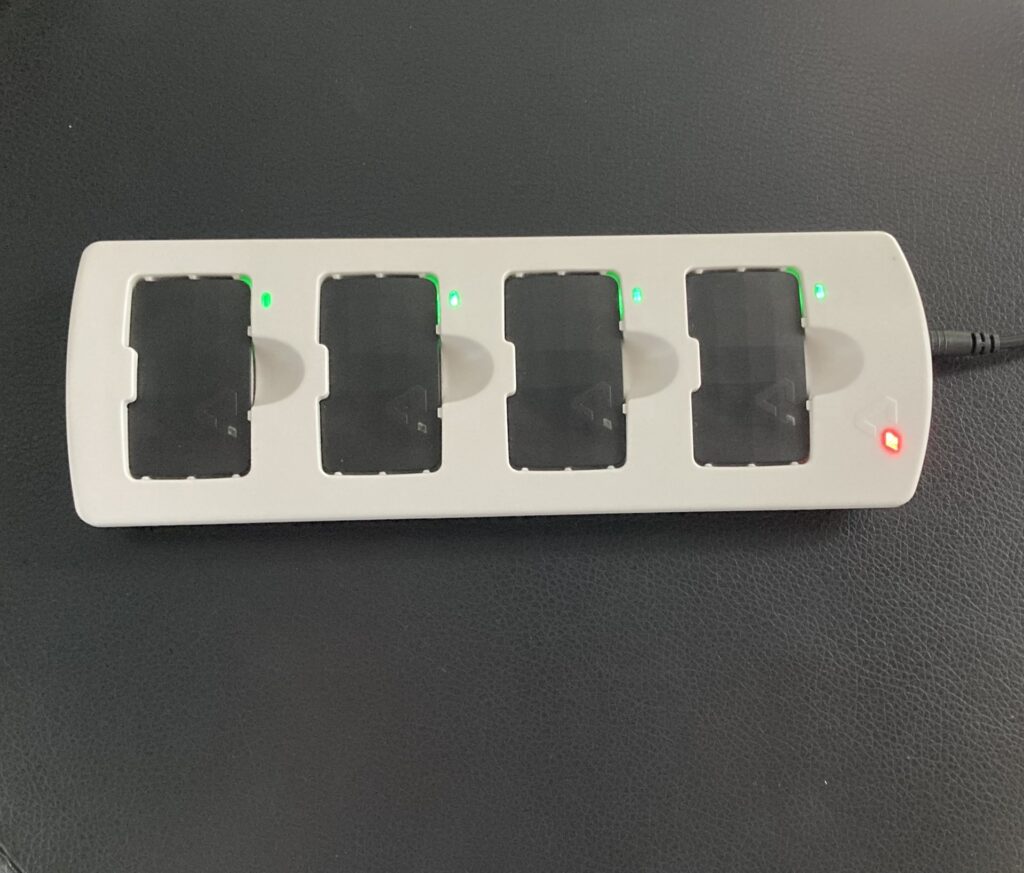

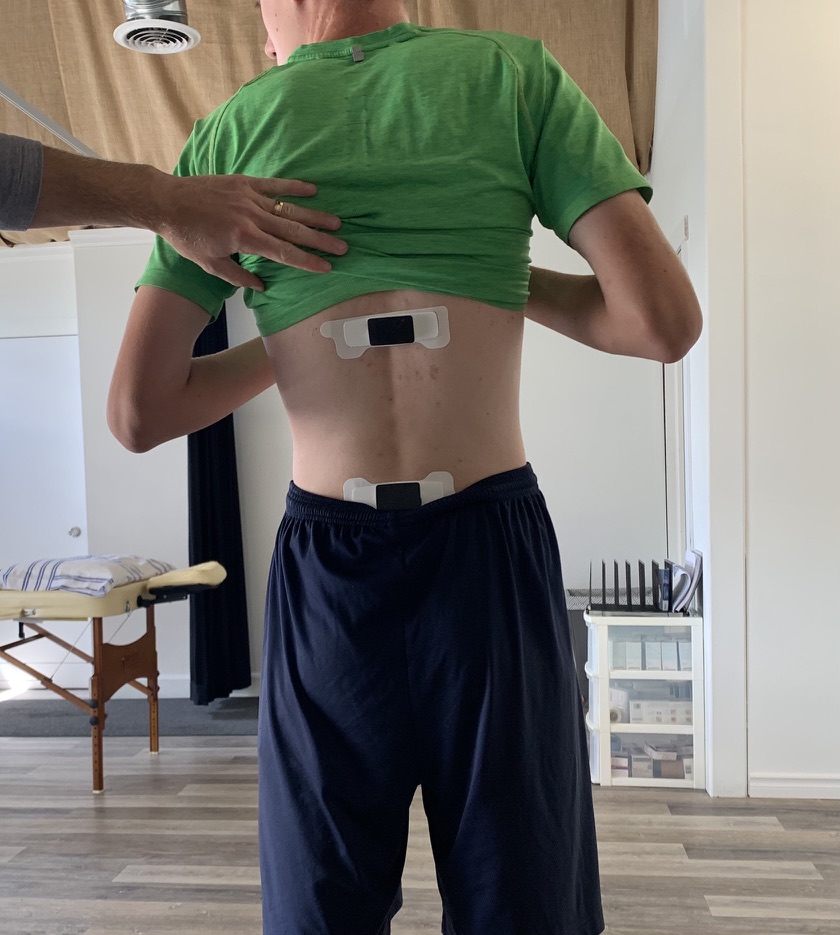
What movements are assessed?
The AMI involves 8 different exercises:
- Front Plank
- Side Plank
- Double Leg Squat
- Single Leg Squat
- Single Leg Vertical Hop
- Single Leg Multi-direction Hop
- Forward Lunge
- Acceleration/Deceleration Test
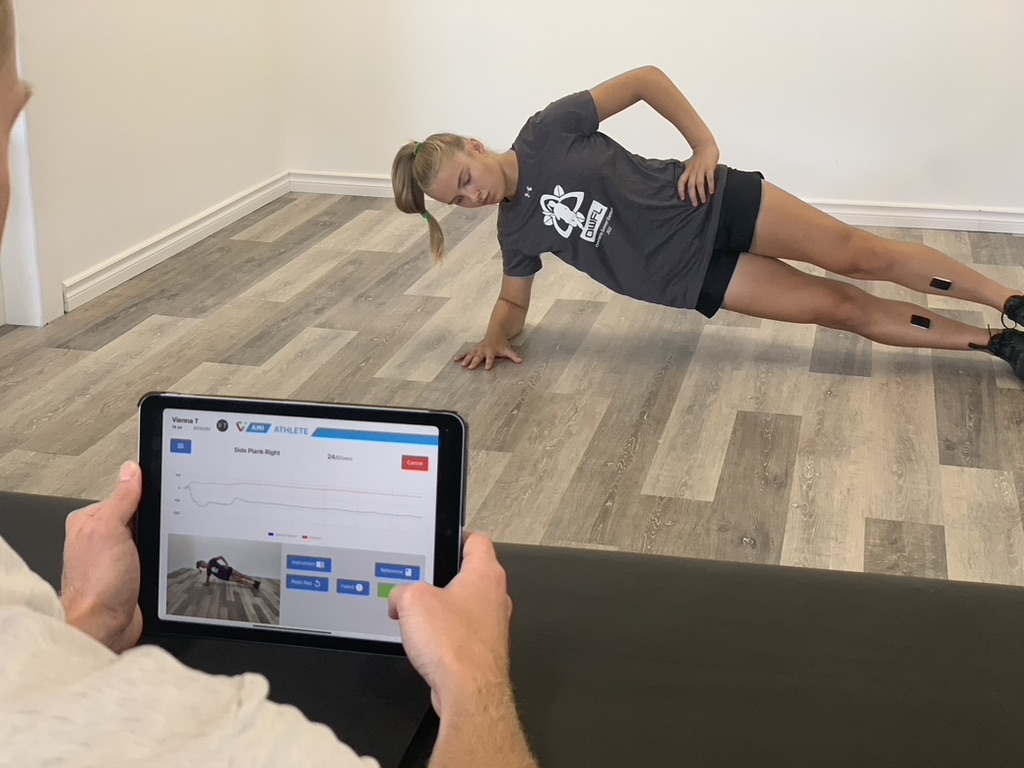
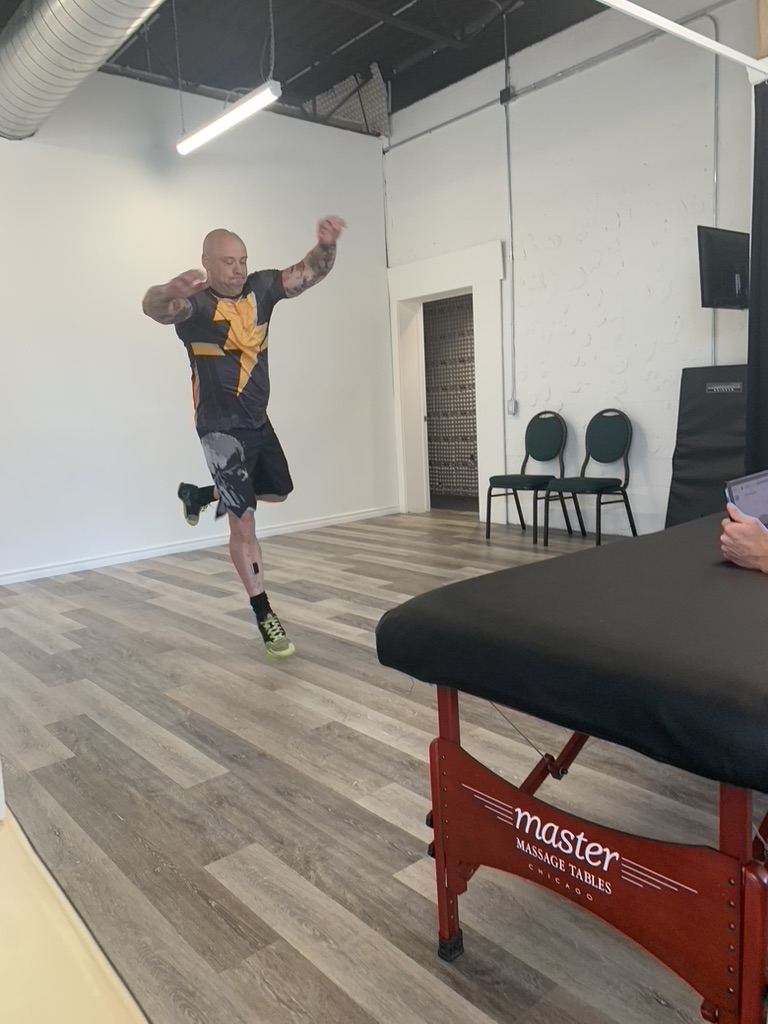

What Information does the AMI tell us?
The DorsaVi AMI assessment provides lab quality objective data on core and glute strength, lower limb biomechanics, limb symmetry performance, ankle range of motion, and acceleration/deceleration patterns.
An example of some of the lower limb biomechanics data is knee valgus/varus. It is well researched that excessive knee valgus during sport is a strong risk factor for an ACL injury. Normative value for knee valgus during a single leg squat is +/- 8 degrees. The AMI is able to measure knee valgus during the single leg squat, single leg vertical hop, and single leg multi-direction hop. If the athlete is consistently outside the normative values of +/- 8 degrees that would indicate a higher risk factor for an ACL injury.
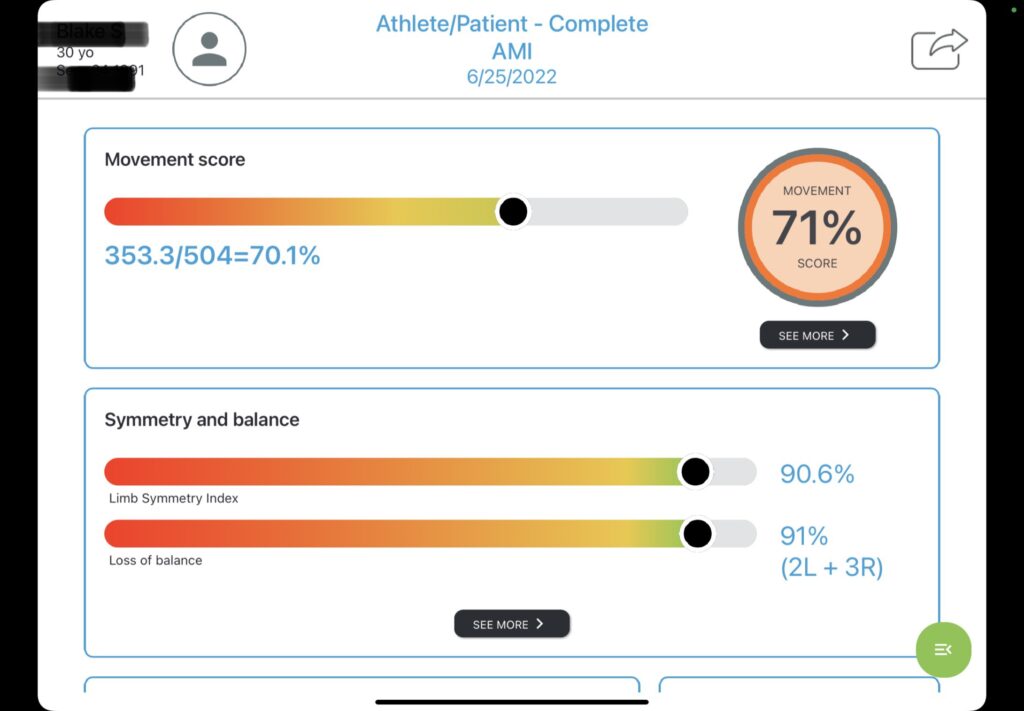
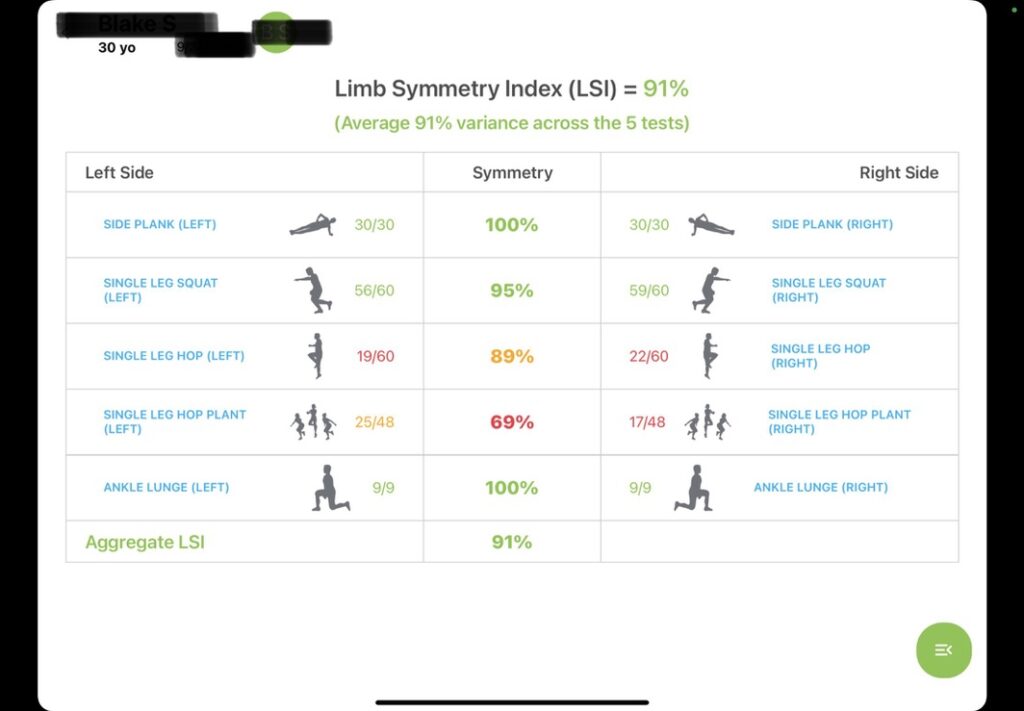

What do you do with the results of the AMI assessment?
The Physiotherapist will examine and review the results of the AMI with the athlete in detail. The Physiotherapist will highlight the strengths of the athlete as well as the weaknesses, asymmetries and biomechanics that may lead to reduced performance and increased risk of injury. The Physiotherapist will then design an individualized exercise program to address the findings of the AMI.
How soon would you re-test the AMI?
Depending on the results of the AMI it is reasonable to re-test in 4-6 weeks to ensure the exercise program is effective in improving AMI results.
How is the AMI different than other athletic screening tools?
The AMI findings are 100% generated from data collected by the movement sensors. This removes the potential for subjective input and biases from the Physiotherapist. The athlete can be confident that the data collected is completely valid and 100% individualized to them.
How much is the DorsaVi AMI assessment?
$160 (no tax). The AMI assessment is completed by a Registered Physiotherapist and therefore can be submitted under extended health care plans.
How do I book an AMI assessment?
You can select a DorsaVi AMI assessment on our online booking platform.

